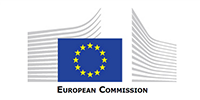
Today the technical provisions of the fourth railway package are entering into force. These are a series of measures adopted by the European Parliament and the 28 Member States to make European railways more innovative and competitive. They will in particular promote common EU rail standards and approvals, thereby contributing to the competitiveness of the rail sector and to the creation of a deeper internal market .
As from today, the European Railway Agency (ERA) will in particular streamline the large number of national technical rules and develop an improved safety culture in Europe. After a three year transition period, ERA will be empowered to issue single EU-wide certificates for rolling stock and railway undertakings. This will significantly cut red-tape and administrative costs for companies, as they previously had to get authorisations in each Member State of operation.
About The European Commission
Transport directly affects everyone in Europe. Whatever age we are, and whatever activities we undertake, transport and mobility play a fundamental role in today’s world. The aim of the Commission is to promote a mobility that is efficient, safe, secure and environmentally friendly and to create the conditions for a competitive industry generating growth and jobs. The issues and challenges connected to this require action at European or even international level; no national government can address them successfully alone. The European Commission’s Directorate-General for Mobility and Transport works in concert with the European Union Member States, European industry, citizens and stakeholders.




Comments
There are no comments yet for this item
Join the discussion